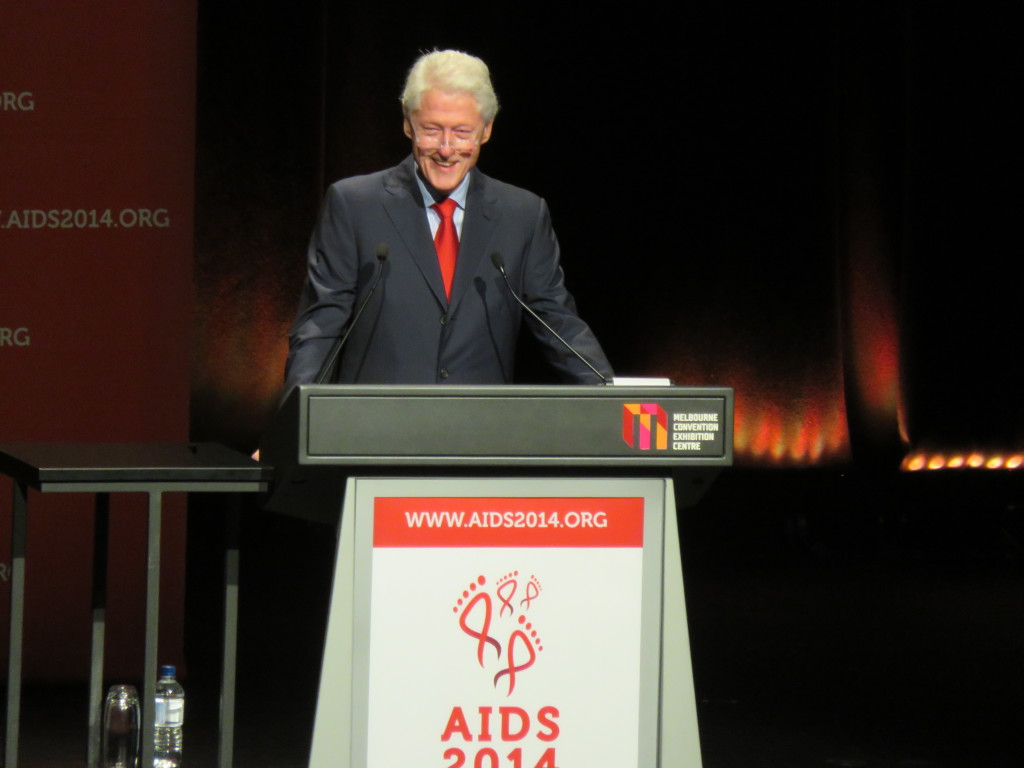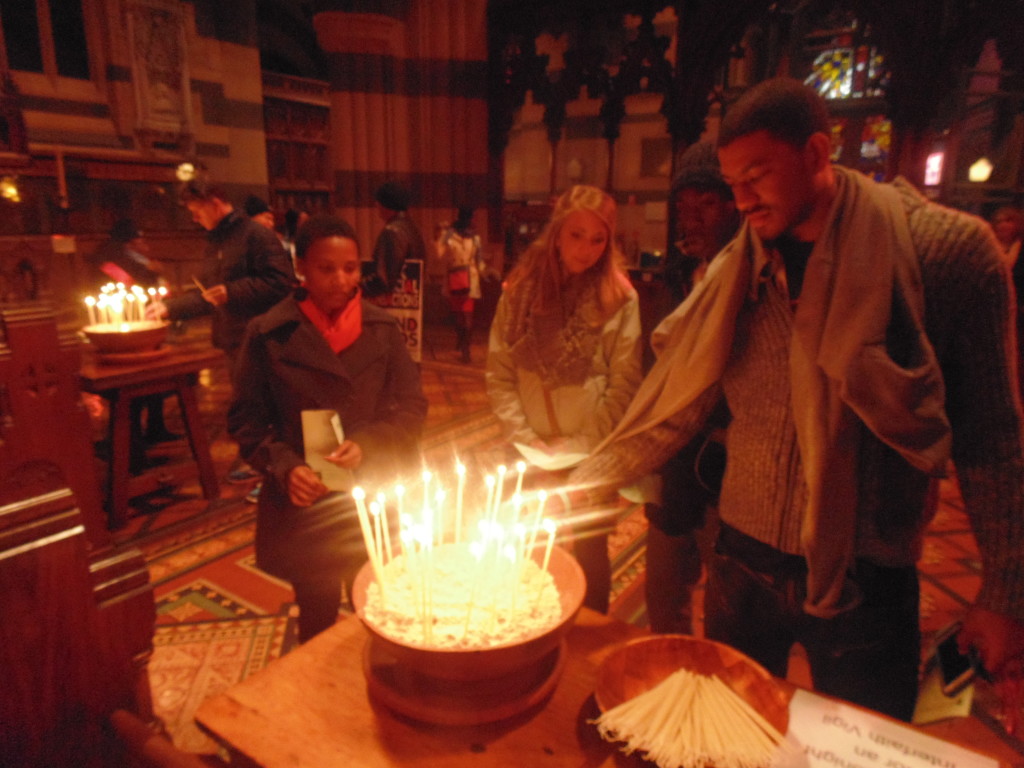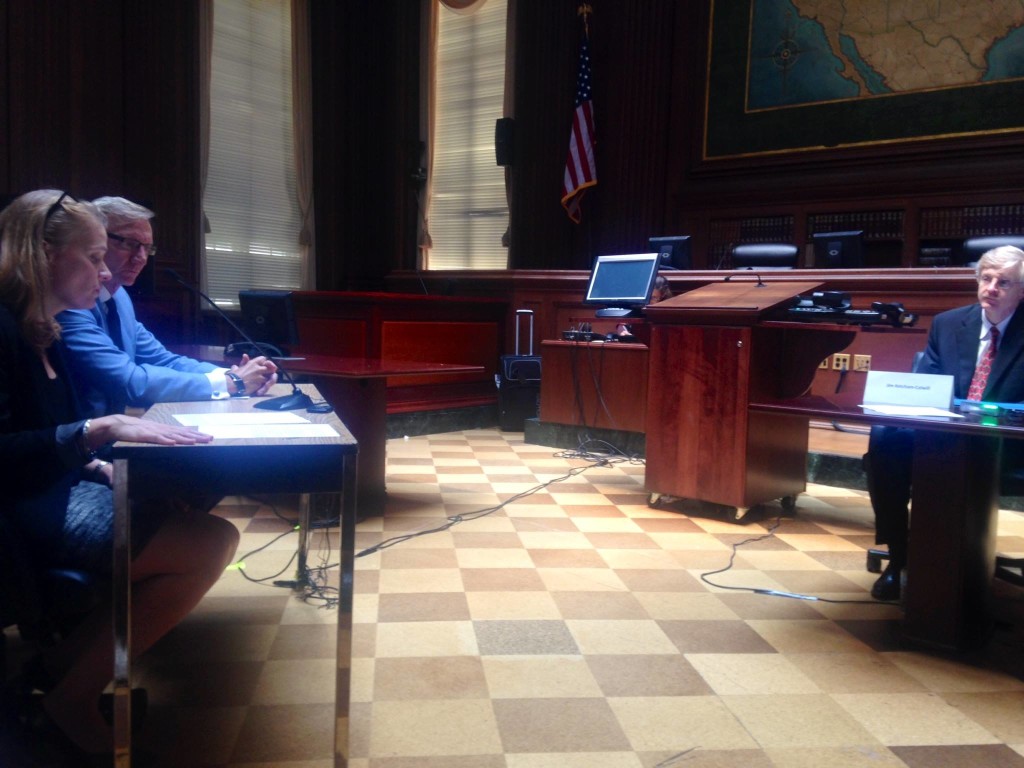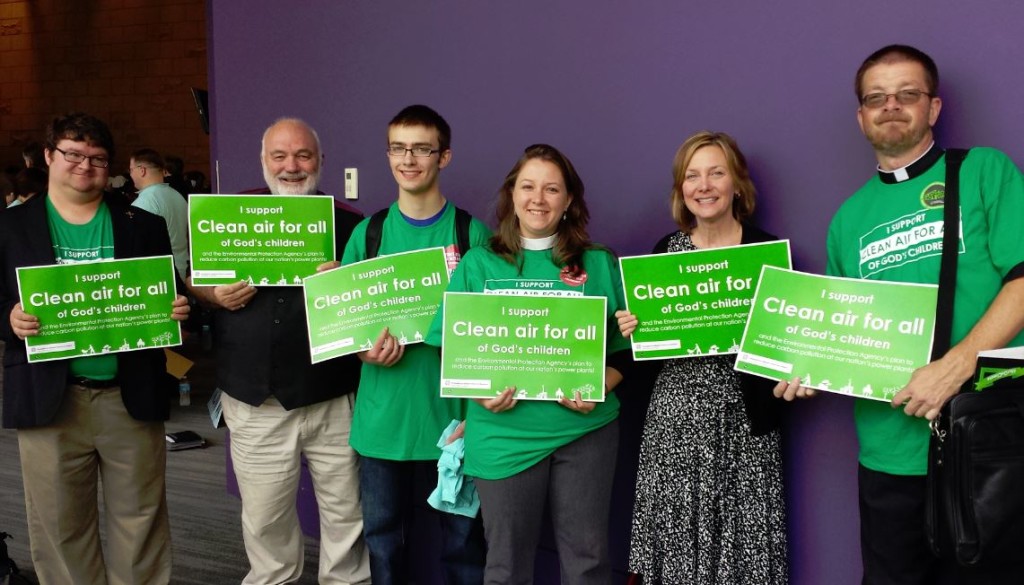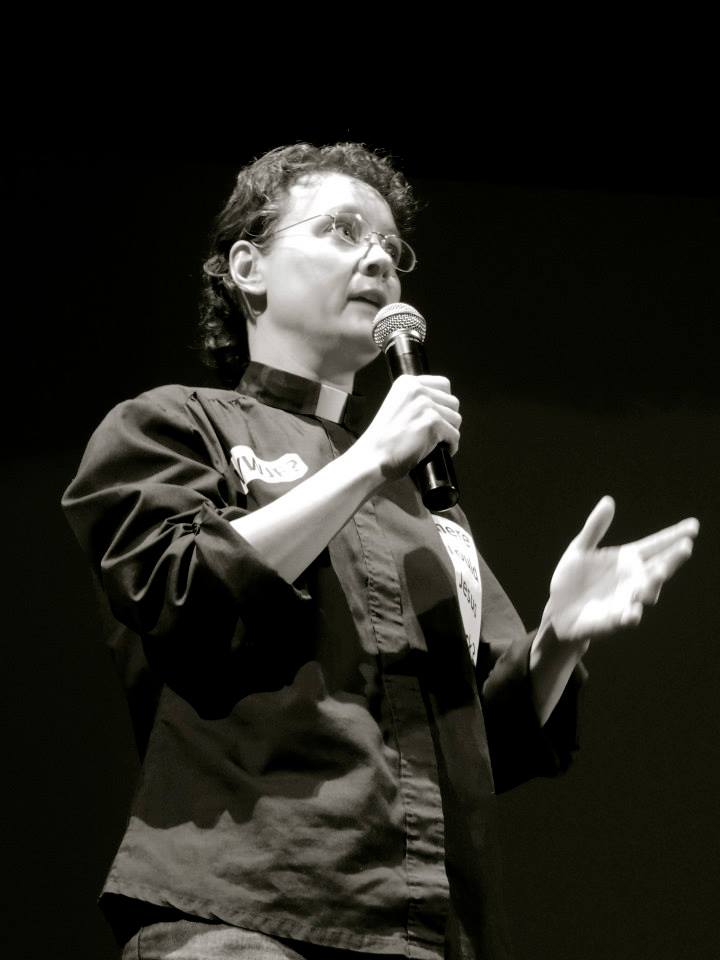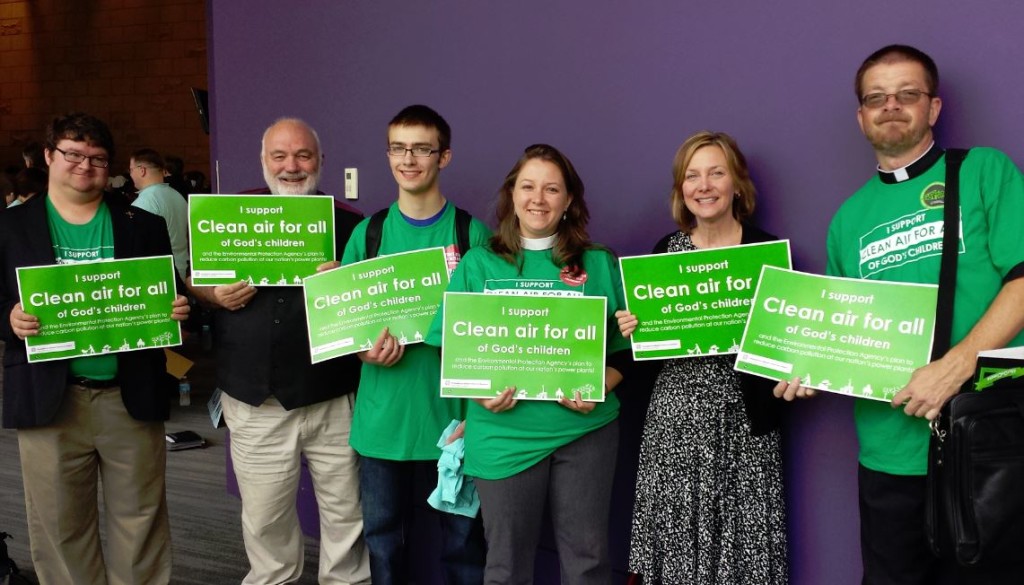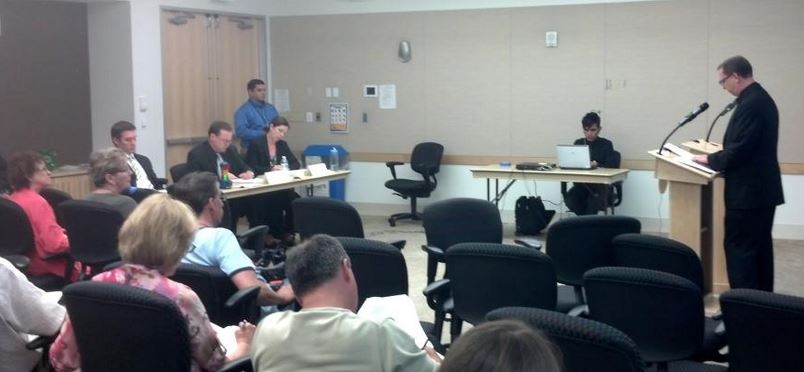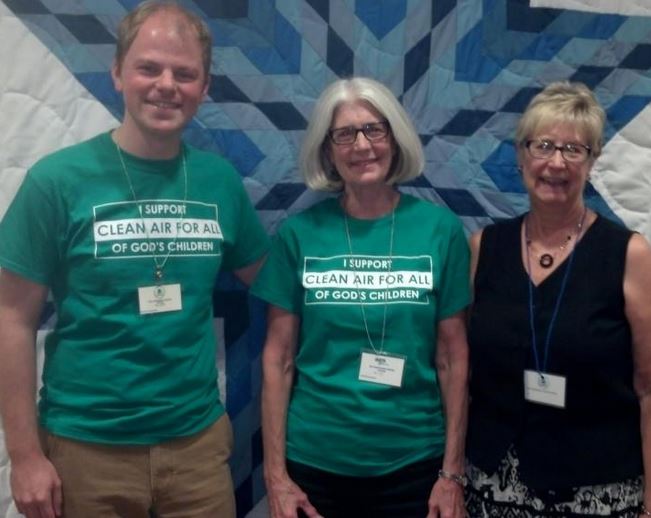”Therefore, since we are surrounded by so great a cloud of witnesses, let us also lay aside every weight and the sin that clings so closely, and let us run with perseverance the race that is set before us, looking to Jesus the pioneer and perfecter of our faith, who for the sake of the joy that was set before him endured the cross, disregarding its shame, and has taken his seat at the right hand of the throne of God.”
Hebrews 12:1
On September 21, 2014, hundreds of thousands – perhaps even millions – of people are expected to gather in New York City for what may be the largest march to date on climate change. During the upcoming People’s Climate March, marchers will be asking global leaders, who will meet at the United Nations later that week, to take this issue seriously and to pledge themselves to action on this critical issue that threatens our children’s future and the future of God’s creation.
I’m planning to be there, along with thousands of other people of faith, because I see climate change as a threat to the future of God’s creation and the lives of all those to come. God created the earth and called on us to take care of it and Jesus called on us to care for our neighbors, whoever and wherever they may be. Stewardship and love of neighbor demand that we act on climate change: ours is the first generation to feel the impacts of a changing climate in the form of more extreme weather and rising sea levels, and ours is the last generation with a chance to do something to stop it.
When I first heard about the march, I was skeptical–I struggled with the idea of thousands of people traveling to New York, emitting carbon into the atmosphere, for a single day’s event. But we are at a critical moment on a critical issue, and maybe this march will mark a beginning. My hope is that this will be the day that turns the tide and changes the hearts and minds of the cloud of witnesses that surround us, and marks the new beginning we need if we are to protect God’s creation for our children and their children.
This past week the New York Times reported that the Intergovernmental Panel on Climate Change, the group of scientists that periodically comes together to report on the latest science on climate change, will release the final part of its Fifth Assessment report next month. For the first time, this report will include the word “irreversible.” The draft report outlines a sobering reality – unless all countries act very soon and very deliberately to reduce emissions of carbon dioxide and other greenhouse gases, some of the worst predictions of prior reports will occur; melting ice sheets in the Arctic will raise sea levels by as much as 23 feet, global production of staple grains will see significant drops, and extreme weather events such as heat waves and flooding rains will happen with increased frequency.
In the face of these sobering predictions, some may lose hope. Some may continue to deny, saying it will never happen, believing that it can never happen. But we are people of faith and hope, and we know that we can change our ways, and we can prepare for this challenging future. And so we march, before the great cloud of witnesses, to demonstrate God’s love and hope for each of us and for the world. We march, marked by the cross, saved by grace, out of love for our neighbors and God’s earth.

